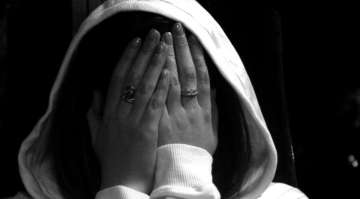Elderly Christian woman stripped naked and paraded through streets by mob
Cairo: An armed Muslim mob stripped an elderly Christian woman and paraded her naked on the streets in an attack last week in which seven Christian homes were also looted and torched in a province
Cairo: An armed Muslim mob stripped an elderly Christian woman and paraded her naked on the streets in an attack last week in which seven Christian homes were also looted and torched in a province south of the Egyptian capital.
According to the local Orthodox Coptic church and security officials, the assault in the Minya province village of Karma on Friday began after rumors spread that the elderly woman's son had an affair with a Muslim woman— a taboo in conservative Egypt.
Police have arrested six men suspected of taking part in the violence and are looking for 12 more, the security officials said, speaking on condition of anonymity because they were not authorized to speak to the media.
President Abdel-Fattah el-Sissi called for the culprits to be held accountable and gave the military a month to restore property damaged during the violence, at no cost to the owners.
In a statement issued Thursday by his office, el-Sissi said Egypt appreciates the role of "glorious Egyptian women" and that "the rights and the protection of their dignity are a humanitarian and patriotic commitment before being a legal and constitutional one."
Anba Makarios, Minya's top Christian cleric, told a talk show host on the private Dream TV network that the 70-year-old woman was dragged out of her home by the mob who beat her and insulted her before they stripped her off her clothes and forced her to walk through the streets as they chanted Allahu Akbar, or "God is great."
The woman reported the incident to the police five days later, said Makarios, adding that she had initially found it too difficult to "swallow the humiliation" she suffered and go to the police.
Attiyah Ayad, a 58-year-old farmer from a nearby village who witnessed the attack, described how the mob chanted "we must drive the infidels out" as they looted and burned the Christian homes, one of which belonged to his relatives. He said they were armed with firearms, knifes and sticks.
"They emptied magazine after magazine, firing in the air to terrorize us," said Ayad, who suffered a head injury from being hit by a rifle butt and his son Ayad, 30, sustained a deep knife wound in his left shoulder.
The incident, intensely publicized since Wednesday night, has unleashed a flurry of condemnations on social media networks where users blamed the influence of ultraconservative Salafi Muslims for the attacks and derided authorities for not reacting quickly.
The hashtag "Egypt stripped naked" on Twitter gained traction shortly after it was introduced.
Extramarital affairs or sex between unmarried couples are taboo among Muslims and Christians in Egypt. They often attract violent reactions in rural areas, where questions of honor can lead to deadly family feuds that endure for years or result in ostracizing the perpetrators.
Christian men cannot marry Muslim women in Egypt unless they convert to Islam first, but Muslim men can marry Christian women. An affair between a Christian man and a Muslim woman takes such sectarian sensitivities to a much higher and dangerous level and often lead to violence if found out.
According to a statement Wednesday by Makarios, police arrived at the scene of Friday's violence two hours after the attack began. The family of the Christian man had notified the police of threats against them by Muslim villagers the day before the attack, he added.
"No one did anything and the police took no pre-emptive or security measures in anticipation of the attacks," the cleric said, speaking in another TV interview, also Wednesday night.
"We are not living in a jungle or a tribal society," he told Ahmed Moussa, a prominent, pro-government talk show host on the private Sada el-Balad television.
Christians, who make up about 10 percent of Egypt's population of more than 90 million people, have long complained of discrimination in the mostly Muslim nation.
El-Sissi, in office since 2014, has sought to address some of their grievances, changing election laws to allow more Christians into the national legislature and easing restrictions on building new churches and renovating old ones. But many Christians say they are still treated unfairly and are often the victims when in disputes with Muslims.
Discrimination against Christians is somewhat subtle in big cities like Cairo or Alexandria on the Mediterranean, but becomes much more pronounced in provinces where they are a sizable minority like Minya, where they make up about 35 percent of the population, the largest in any of Egypt's 27 provinces. Minya, like Assiut province farther south, is a traditional stronghold of militant Muslims.
Makarios, in unusually candid comments, said he predicted the crisis in the Minya village will most likely be handled through a government-sponsored meeting of the two sides in which the Christians will be forced to accept "humiliating" conditions for reconciliation.
